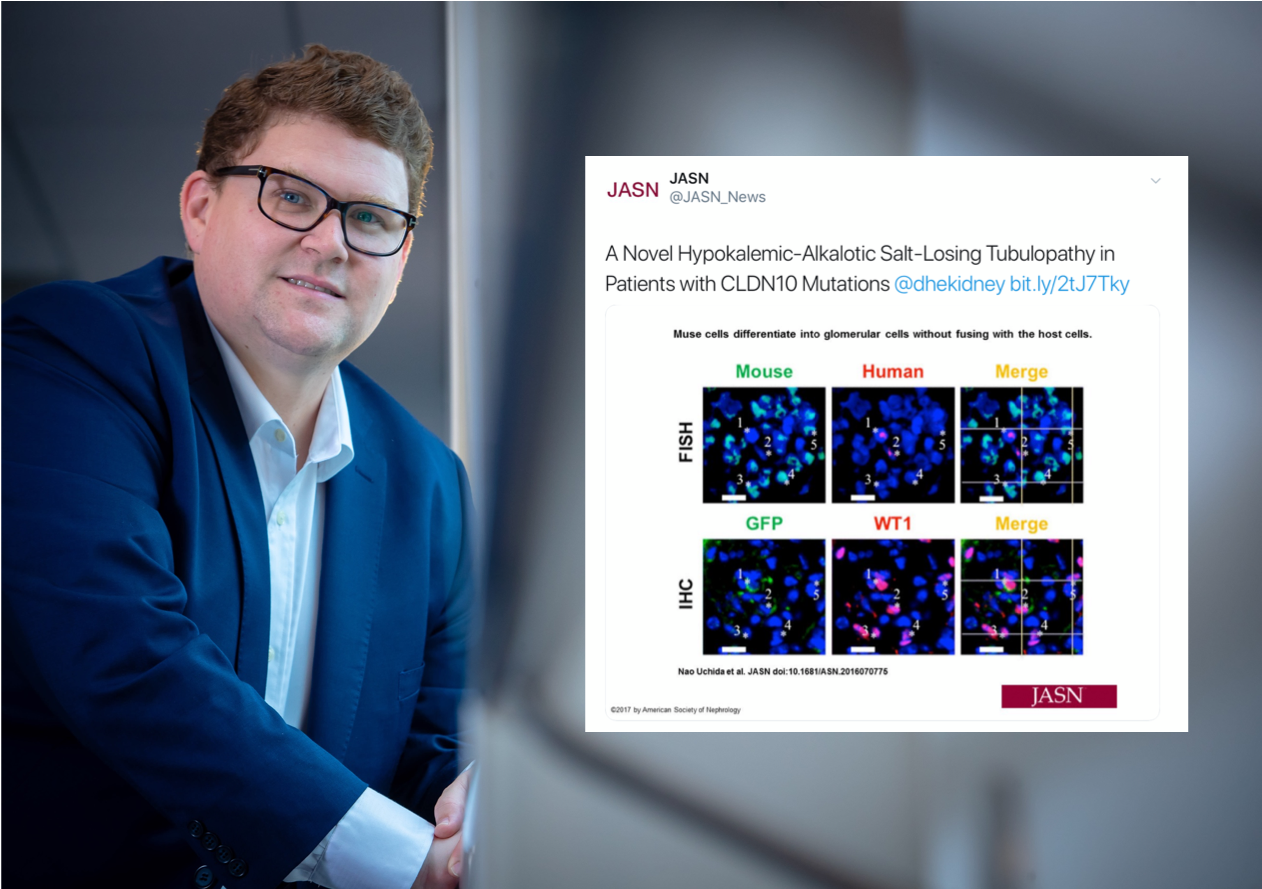
Social media is emerging as a valuable tool for doctors and patients as demand for rapid results and the need to share new knowledge increases.
In the fast-paced world of genomic testing, where a rapid diagnosis can be life-saving, the opportunities for social media are even greater.
An article in the international journal Kidney Medicine reveals how Twitter played a crucial role in the diagnosis of two cases of rare kidney disease in Australia.
Lead author, Brisbane-based nephrologist Andrew Mallett, was reading his Twitter feed early one morning when something caught his eye: a post by a clinical researcher in the US made a link between a newly-reported gene and a rare kidney disease.
The US patient’s phenotype (physical characteristics) described in the tweet was the same as a patient that Associate Professor Mallett and his colleagues were investigating.
Associate Professor Mallett, of the research group Australian Genomics and Royal Brisbane and Women’s Hospital, says the “light bulb moment” was near immediate: within an hour he had reviewed the local family’s research genomic data, to discover they shared a variant in the same gene mentioned in the Twitter post.
The same scenario played out a second time with another family only a few months later: “I was just astounded that the final element that identified a diagnosis in both families was this information on Twitter,” he said.
“We had worked closely with both families for some time, undertaking diagnostic and research genomic investigation, then the final answer came at a time and from a source that I least expected.”
However, he stressed that all information on social media should be verified.
One in eight adults has a biomarker for kidney disease and at least one in 10 Australians with kidney disease have a genetic or inheritable form. The disease costs Australia about $1.4 billion a year.
The Kidney Medicine article says that platforms are emerging that may enable unexpected innovation and more opportunity for benefits to patients.
Those such as Twitter enable information to be perused and shared rapidly and widely between individuals, groups and institutions that are able to form networks due to similar interests.
“Social media can play an important role in increasing dissemination of medical knowledge, global communication and opportunities for serendipity to occur, particularly within the fields of human genetics and rare disease,” it says.
Media Dorothy Illing 03 9936 6224; 0458 549 94

